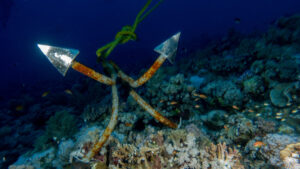Viridis drilling highlights potential to multiply high-grade Cupim South REE resource

Multiple image of young female models walking on sand dunes at desert against blue sky
- Viridis drilling intersects multiple high-grade zones outside the Cupim South REE resource
- Results indicate the potential to multiply existing high-grade footprint
- Highest graded Cupim South blocks with over 6500ppm TREO continue to remain open
- Drilling also highlights areas of greater thickness and grades than previously understood within the Northern Concessions
Special Report: Step-out drilling intersects multiple high-grade zones grading up to +7000ppm TREO outside the Cupim South resource, part of Viridis Mining & Minerals’ Colossus project in Brazil.
The results, which include significant grades of the valuable magnet rare earths dysprosium and terbium (>100ppm) from surface, demonstrates that the current resource represents just a fraction of the total mineralised potential at the project.
For Viridis Mining & Minerals (ASX:VMM), this could be huge. The current Cupim South resource of 28Mt at 3061ppm total rare earth oxides (TREO) is one of the highest-grade individual ionic adsorption clay-hosted deposits in the world.
Not only that, but the resource also covers just ~15% of the Cupim South area.
The drill results come just days after the company outlined the “globally significant” 201Mt at 2590ppm TREO resource at Colossus.

“The consistent and high-grade results across the extension of the Cupim South deposit are remarkable and showcase the homogenous nature of the mineralisation which encompasses the area well beyond the current resource,” chief executive officer Rafael Moreno said.
“Most impressively, the drilling has confirmed the portion of the deposit that hosts the highest graded blocks at Cupim South, which is over 6,500ppm TREO, continues to remain open and extends southeasterly while maintaining similar outstandingly high grades.
Further drill results
Meanwhile, infill diamond and reverse circulation drilling at the Northern Concession deposit has delineated a higher-grade indicated resource base within granted mining licences.
It also highlighted areas of greater thickness and grades than previously understood within the current resource model.
Notable results from this drilling include:
- 16m at 6231ppm TREO from 2m, including 8m at 7336ppm TREO [37% MREO] and 70ppm dysprosium-terbium (CDP-RC-256);
- 22m at 3460ppm TREO from surface, including 10m at 4274ppm TREO [30% MREO] in CDP-RC-268; and
- 14m at 4151ppm TREO from 6m, including 6m at 6522ppm TREO [35% MREO] and 71ppm dysprosium-terbium (CDP-RC-249).
VMM said these results show consistent outstanding grades and outstanding proportions of MREO.
This includes the breakthrough discovery of significant dysprosium-terbium mineralisation (>100ppm) at Carijo Hill, which warrants further investigation.

Over at the recently discovered Fazenda Cocal prospect, which extends over 5.44km2, the second set of results such as 5m at 3861ppm TREO from 2m and 10m at 3222ppm TREO from 2m has demonstrated widespread, high-grade mineralisation across multiple licences.
“The infill drilling at Northern Concessions has made breakthrough discoveries of heavy rare earths in a new area and higher grades than previous resource blocks. Furthermore, these results will feed in to provide a high-graded and tonnage indicated portion within the next resource upgrade,” Moreno added.
Resource growth targeted
VMM plans to continue aggressive exploration, with a view to expanding the currently defined resource at Colossus.
Its immediate focus is to increase the higher confidence measured and indicated resource at Cupim South, Centro Sul and Fazenda Cocal through infill and step-out drilling and including the Tamoyo prospect.
The company also expects to complete its scoping study in the coming months and continue with critical permitting activities.
This article was developed in collaboration with Viridis Mining & Minerals, a Stockhead advertiser at the time of publishing.
This article does not constitute financial product advice. You should consider obtaining independent advice before making any financial decisions.
Related Topics

UNLOCK INSIGHTS
Discover the untold stories of emerging ASX stocks.
Daily news and expert analysis, it's free to subscribe.
By proceeding, you confirm you understand that we handle personal information in accordance with our Privacy Policy.








